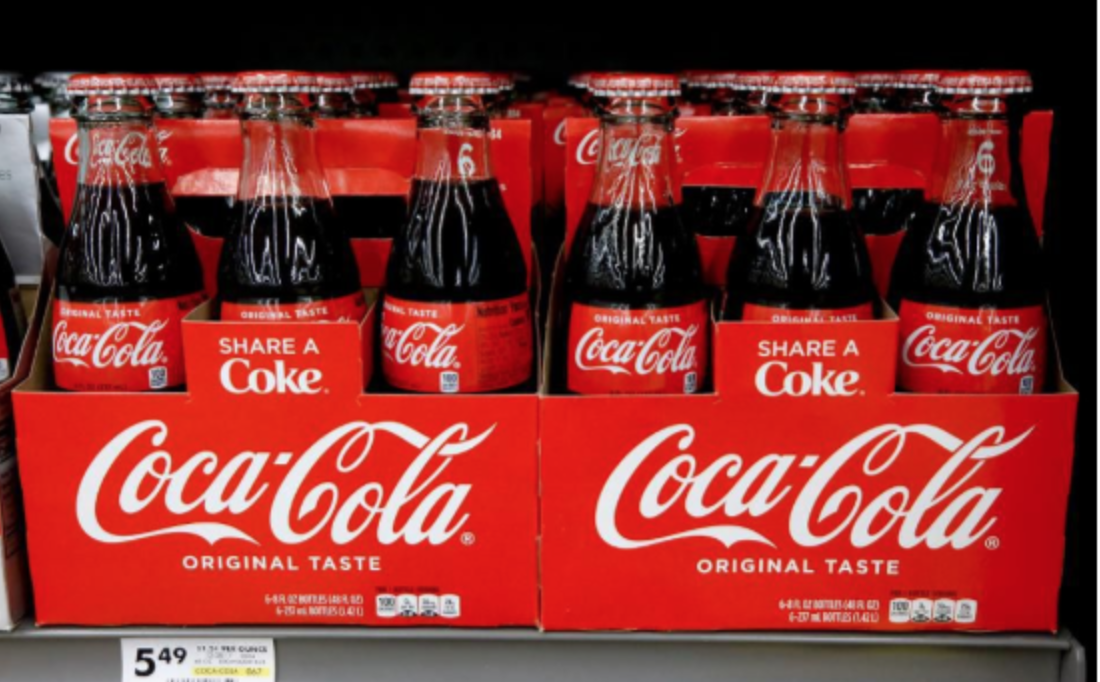In past years, the soda monopoly Coca-Cola was exposed for using cocaine as a secret ingredient to get customers ‘hooked’ on their product. Although it has long since been banned, it appears that the company has started to drug their customers once again. This time, however, they’ve shifted their angle toward the drug CBD, more commonly referred to as cannabis.
According to Forbes Magazine, 9 states in the U.S., including the nation’s capital, have legalized marijuana since January 2018. Coca-Cola is hoping to increase this number with the passing of the ‘Farm Bill.’ If passed, it would “remove hemp as a controlled substance which CBD can be derived from, therefore making the plant legal under federal law.” Coca-Cola is counting on this bill to skyrocket financial development and potential business-consulting opportunities.
As of 2018, Coca-Cola owns approximately 500 brands all over the world. The company has been deviating from its soda brand reputation, with ideas such as an alcoholic beverage that is currently being developed in Japan. However, there are reports that more serious conferring has been done with Aurora, a cannabis company, in regard to releasing a cannabis beverage line. The product would supposedly be marketed toward people suffering from cramps, inflammation and similar pains. Coca-Cola disputed these rumors, though, citing that they have “…no interest in marijuana or cannabis. Along with many others in the beverage industry, we are closely watching the growth of non-psychoactive CBD as an ingredient in functional wellness beverages around the world. The space is evolving quickly. No decisions have been made at this time.”
What differentiates CBD from illegal substances such as cocaine is that it holds no potential for abuse or dependence. According to the World Health Organization (WHO): “A compound found in the cannabis plant is not harmful, has health benefits, and does not have abuse potential,” a conclusion drawn from numerous, extensive studies conducted on both humans and animals. Most research conducted by the organization is concentrated on the effects CBD may have on epilepsy, which are reportedly helpful in treating the condition.
In addition to epilepsy, CBD can potentially treat Alzheimer’s, anxiety, depression, and even Parkinson’s. “CBD may ease inflammation, provide antioxidants, and relieve pain,” according to the WHO. Despite these positive attributes, though, the current information is not enough to declassify CBD as a Substance 1 Drug, meaning it is still considered to have “no medical use” and is “likely to be abused.”
While it remains a federal crime to possess or sell cannabis, 29 U.S. states have legalized the drug, including Washington, D.C. Georgia remains one of a few states to permit it only to treat specific disorders. “Despite those federal regulations,” the WHO informs, “CBD is an ingredient in popular products sold over the counter as oils, extracts, supplements, and gum to treat many ailments.”
Customers of Coca-Cola would not benefit from this potential product. “I am not a fan of Coca-Cola, or most sodas in general, so I just kind of don’t care what they do, but it does seem concerning,” said undeclared freshman Kasia Lipa. She continued on with an important question customers should be asking themselves: “Would Coca-Cola include cannabis in all their sodas or make it a whole new soda? Because otherwise it would impact individuals, particularly the ones who are less than 18 [years old]. I don’t see why cannabis would be mixed with soda when it is already sold in other forms. I am not against cannabis in general, but I just don’t see how Coca-Cola considers this a good idea.”
Sophomore classics major Jessica Alexander agreed, stating, “I don’t think Coca-Cola should put cannabis in their products because a person might be driving and drinking a can of Coke and cause himself/herself harm or others around.” Furthermore, she feels as though despite this effort being conducted for good purposes, it can become a bad situation very quickly. “The way that I’ve seen medical cannabis administered in videos was through drops or shots, not through a sugary drink. I’m afraid people [may] take advantage of this new cannabis drink and ruin the real need of medical cannabis for those who need it.”
It is only a matter of time before customers are introduced to this anticipated product. Either history will repeat itself and most of them will develop drug-addictions, or Coca-Cola will learn from their mistakes and work to prevent this from happening.











